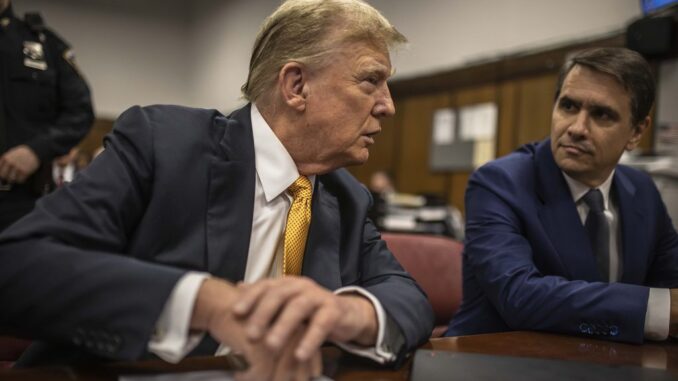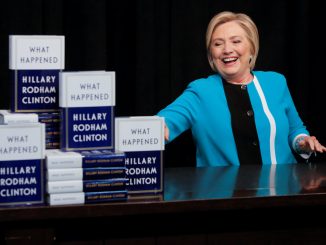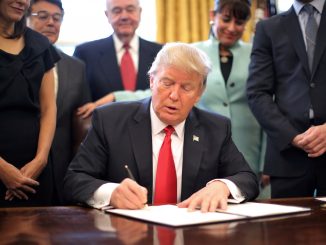

Did Donald Trump falsify business records to cover up his payment of hush money to Stormy Daniels? Did he do it to hold onto women voters in the days leading up to the 2016 election?
Reading the daily press accounts of the New York trial leaves little doubt that the prosecution made its case.
Michael Cohen is a liar, convicted as one, but his testimony addressed and answered the key questions in the case. Daniels at one point denied having an affair with the former president, but she did not waver at the trial.
Her account of her interaction with the former president was searing. The records were clear. Hush money is not a legal expense. Cohen did what he was told. Trump was fully on board. What more could you expect from the prosecution?
With closing arguments expected to come as soon as next week, the defense has yet to introduce an alternative narrative of what happened here.
There is no alternative narrative. They may claim it was all to protect his family, to shield Melania from embarrassment, but Hope Hicks made clear there was a political imperative. And who would believe that it was all for Melania? It was for Trump.
Even the most cynical of the talking heads acknowledged that over the course of the trial, the chances of a conviction increased. The question, and it has always been the question, is to what end? Will the jury convict?
Juries like judges, and this one, by all reports, should command the greatest respect of the jurors. He has controlled the courtroom, been even-tempered and even-handed. The judge will read the instructions, inform the jury of the elements of the crime and ask them to apply the law to the facts they find. It should not be difficult.
This is not a complex fact situation. It was a straightforward payoff for an obvious purpose — and it worked, until it didn’t. If the jury does what the judge instructs them to, and there is no reason at this point to think they will not, it should not be difficult for them to reach a verdict.
Will they be swayed by the fact that they are convicting a former president?
It could happen, of course, but they have been sitting in a courtroom with him for over a month. He has, in all likelihood, been reduced to human size.
They’ve watched him squirm and smirk and struggle to stay awake.
Whatever kismet he brought to the room when they first confronted him should have worn off by now. He is human-sized. Their job is straightforward, for all the historical footnotes.
No, the big question is not whether the prosecution has made its case — it has — or whether the jury will accept it — they should — but whether it all will matter. Significant numbers of voters have told pollsters that a criminal conviction will make them less likely to vote for Trump, but will it really?
Will they simply accept this, as they did the E. Jean Carroll verdict, as yet another example of Trump being Trump? So he paid hush money to a woman with whom he had an exploitive sexual relationship. So he did it to try to protect himself in the presidential election. So he falsified it as legal expenses. So what? At what point is enough enough?
At what point will people with morals and values be unwilling to compromise on a leader who is deficient on both scores? The parade of Republicans who have shown up at the courthouse to support Trump during this trial is a testament to the moral bankruptcy of the GOP. They should be ashamed of themselves.
Only half in jest, they were willing to risk control of the House floor to get in line for the cameras and kiss the ring. Someday, hopefully, we will look back on all of this and wonder how so many people who should know better took temporary leave of their senses to stand by a man who does not deserve their support. But between now and then, the jurors and then the voters must decide.



